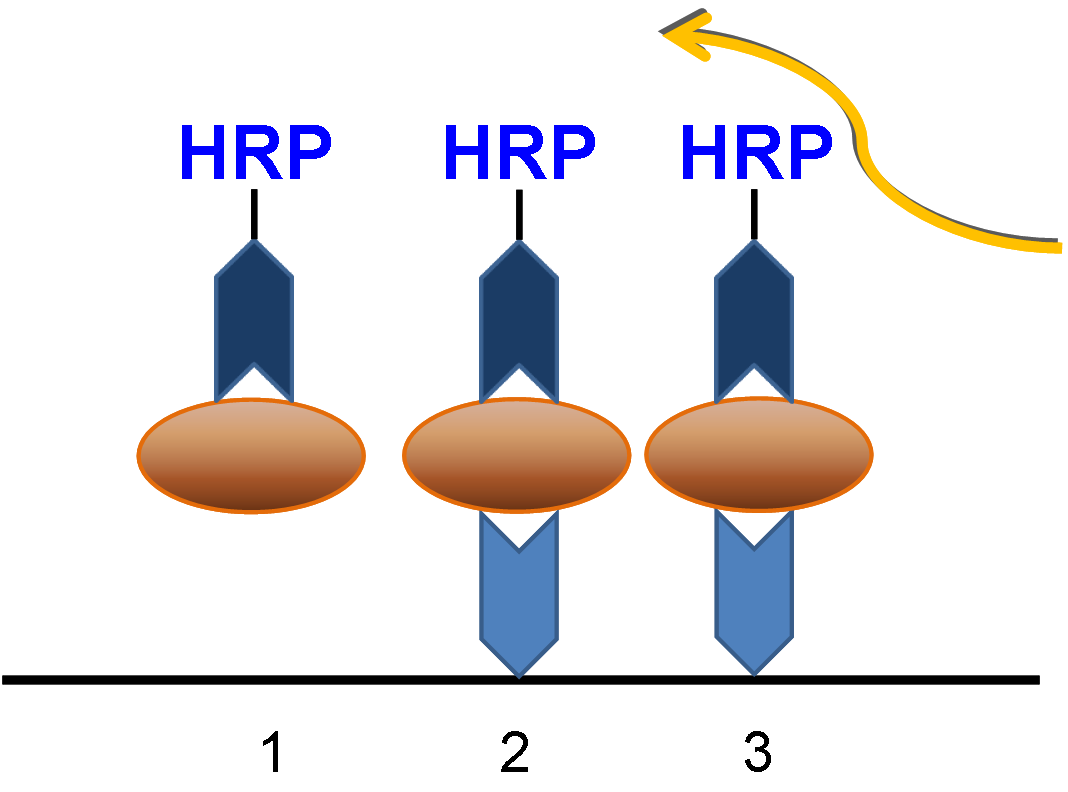Mouse ApoE ELISA Kit ( Part mApoE-Biotin ELISA) kw: APOE, ApoE elisa
|
Mouse Apolipoprotein E (ApoE) ELISA Kit
Dynamic Assay Range: 30ng/ml - 90ug/ml. Sensitivity: 271ng/ml.
Lead Time: Approximately 1.5 weeks
Specifications
Methods Overview:
The included ELISA micro-strip plate is provided pre-coated with an a monoclonal capture antibody selective to the antigen. Samples are pre-mixed with a provided biotin-linked detection antibody and provided streptavidin-HRP, which are then added to the plate. The plate is washed after a 60 min incubation period. Color reagents are added, resulting in a reaction with HRP that yields a blue colored solution. A stop solution is applied to terminate the reaction, and the solution is measured at 450nm.
Sandwich ELISA Methods to ApoE 
ELISA Assay Steps
Introduction to ApoE:
ApoE transports lipoproteins, fat-soluble vitamins, and cholesterol into the lymph system and into the blood. It is synthesized in the classical secretory pathway principally in the liver and is also expressed in brain, kidney, and spleen. In the nervous system, non-neuronal cell types, most notably astroglia and microglia, are the primary producers of ApoE, while neurons express the ApoE receptors. There are seven currently identified mammalian receptors for ApoE.
ApoE has several major allelic isoforms: ApoE2, ApoE3, ApoE4: Normal ApoE-ε3: Dysfunctional ApoE-ε2 and ApoE-ε4. The major allelic forms differ by amino acid substitutions at positions 112 and 158. The E2 allele codes for Cys at positions 112 and 158 in the receptor-binding region. In contrast, the E3 allele expresses Cys-112 and Arg-158 at these positions, and the E4 allele has Arg at both positions. E2 is associated with the genetic disorder hyperlipoproteinemia type III and atherosclerosis. E3 is found in approximately 64 percent of the population; it is considered the "neutral" Apo E genotype. E4 has been implicated in atherosclerosis and Alzheimer's disease, impaired cognitive function, and reduced neurite outgrowth.
Gerneral References on ApoE:
For research only. Not for diagnostics.
Safety: Stop solution contains acid. Avoid ingestion, skin and eye contact.
Storage: 4°C. 6 months.
Shipping. Overnight domestic delivery recommended with ice pack (cost: $42 for 1-2 kits). Also avaialble for international delivery; please inquire for shipping cost.
|
 Products
Products Manuals
Manuals

